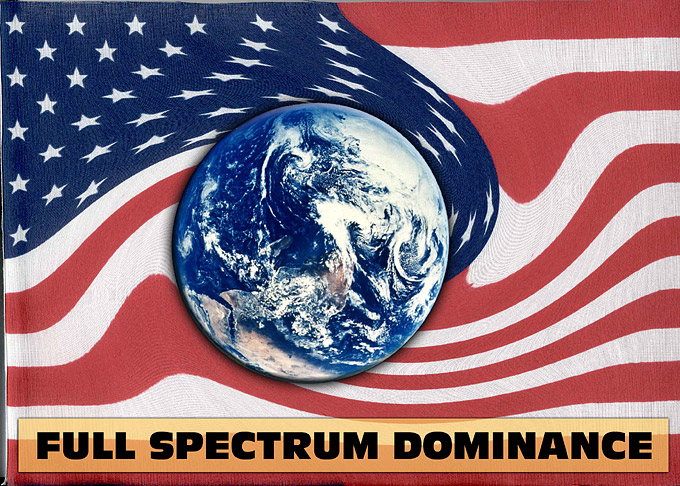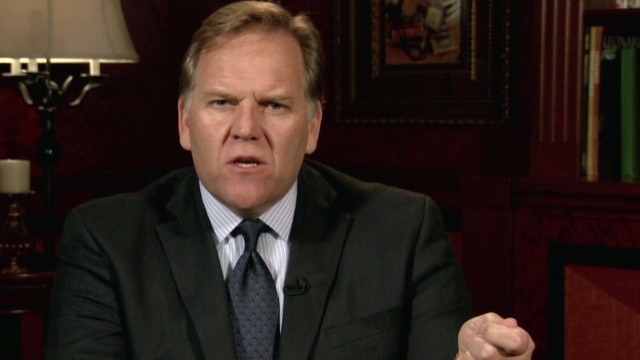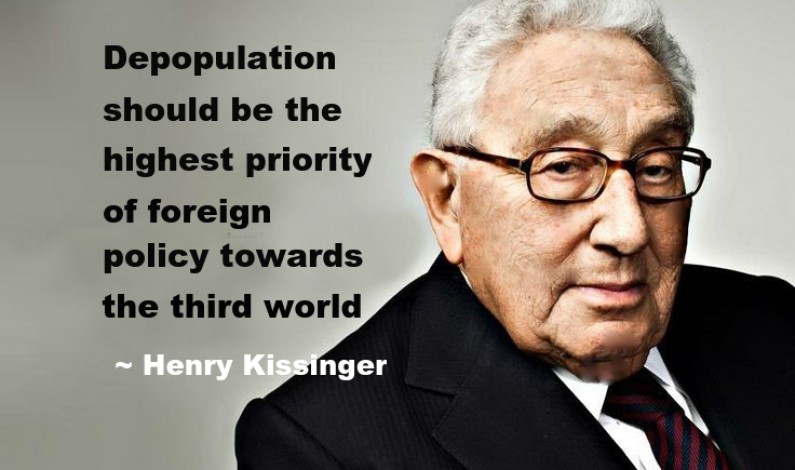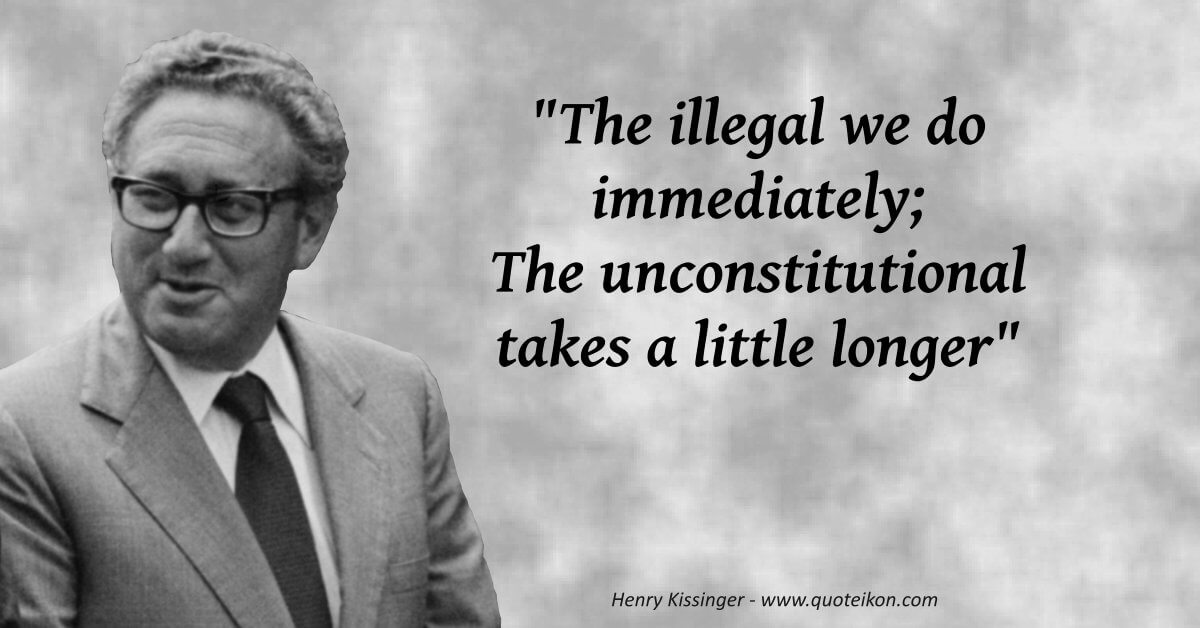
What Is America’s Cause in the World?
Patrick J. Buchanan / Creators Syndicate
(June 8, 2021) — “Take away this pudding; it has no theme,” is a comment attributed to Winston Churchill, when a disappointing dessert was put in front of him. Writers have used Churchill’s remark to describe a foreign policy that lacks coherence or centrality of purpose.
For most of our lifetimes, this has not been true of the United States. The goal of our foreign policy has been understandable and defined. From 1949-1989, it was Cold War containment of the Soviet Empire and USSR.
Ronald Reagan believed in a “rollback” of communism, once telling an aide that his policy might be summed up as: “We win. They lose.”
At the Cold War’s end, George H. W. Bush said America would now lead mankind in the creation of “a New World Order.” George W. Bush was going to deny to all “axis of evil” nations — North Korea, Iran, Saddam Hussein’s Iraq – access to the “world’s worst weapons,” with our ultimate goal being “ending tyranny in our world.”
According to the Biden Democrats of today, America’s goal is the preservation of “a rules-based international order,” which is less inspiring than “Remember the Alamo!” or “Remember Pearl Harbor!”
What Are the Causes that Actually Animate Americans?
A March survey of 2,000 registered voters, done by the Center for American Progress, reveals that most Republicans still share the foreign policy priorities of Donald J. Trump.
Asked to identify their first three foreign policy priorities from a list of a dozen, two-thirds of Republicans, 65%, gave as their principal concern “Reducing illegal immigration.” And 57% of Republicans put “Protecting jobs for American workers” right behind it. Independents agreed that these should be the top twin goals of U.S. foreign policy.
What does this tell us?
Economic nationalism is alive and well in the GOP, and securing the border remains a central concern of America’s center-right.
In third position, at 31% among Republicans, was “Taking on China’s economic and military aggression.”
Only 9% of Republicans listed “Fighting global poverty and promoting human rights” as top foreign policy priorities. Last among GOP priorities, at 7%, was “Promoting democratic rights and freedoms abroad.”
Indeed, this was the least popular foreign policy option among all voters.

Conclusion:
The priorities of the Bush presidencies and the neocons — democracy crusades, free trade, the New World Order, open borders — have failed to recapture the constituencies they lost in the Trump years. While “Combating global climate change” rests near the bottom of Republican concerns at 10%, it is the No. 1 priority of Democrats, with 44% listing it first.
When it comes to “Ending US involvement in wars in the Middle East,” that goal ranks 5th among all voters. Democrats, Republicans and independents all support that objective.
Since the last CAP survey in 2019, the greatest change is the reduced concern over “terrorist threats” from al-Qaida and ISIS. Fewer than 1 in 4 voters now view this as a top priority. As Matthew Petti writes in an analysis of the CAP survey, today, Americans “prioritize getting out of Middle East wars over confronting Middle East adversaries.”
This survey would thus seem to provide public support for the Trump-Biden withdrawal from Afghanistan, and for Biden’s effort to re-engage with Iran and renew the 2015 nuclear deal. Also ranked high among Democrats and independents, but less so among Republicans, is “Improving relationships with allies.”
What does the survey tell us?
Illegal immigration and economic nationalism energize the GOP rank-and-file; climate change does not. There is no enthusiasm in either party for new democracy crusades. And there seems to be no enthusiasm in either party for a clash with Iran, North Korea, Russia or China. Only 14% of Democrats wish to address China’s “military and economic aggression,” though 31% of Republicans do.
But the overall impression here is one of democratic confusion.
We Americans are all over the lot about what our foreign policy should be and what it should do. One is reminded of an insight from Walter Lippmann about U.S. foreign policy confusion before World War II:
“When a people is divided within itself about the conduct of foreign relations, it is unable to agree on the determination of its true interest. It is unable to prepare adequately for war or safeguard successfully its peace. Thus, it course in foreign affairs depends, in Hamilton’s words, not on reflection and choice, but on accident and force.”
Should we energetically promote democracy worldwide, because it is the right and moral thing to do, though the American people clearly do not see this as America’s cause?
Should we intervene to help Ukraine retrieve Crimea? Should we fight to prevent China from consolidating rocks, reefs and islets of the East and South China Seas?
Is preserving the independence of Taiwan, which we conceded half a century ago is part of China, worth a war with a nuclear-armed China? What role should US public opinion play in the shaping of US foreign policy?
Patrick J. Buchanan is the author of Churchill, Hitler, and “The Unnecessary War”: How Britain Lost Its Empire and the West Lost the World. To find out more about Patrick Buchanan, visit www.creators.com. Posted in accordance with Title 17, Section 107, US Code, for noncommercial, educational purposes.
‘Stability’: The Media’s Codeword for ‘Under US Control’

“Until we recognize and call out Iran’s destabilizing influence in the region, we will not be able to make any real progress on any of the litany of issues facing the Middle East.” — Mike Rogers in The Hill
Alan MacLeod / Fairness and Accuracy in Reporting (FAIR)
(June 4, 2021) — The world watched aghast last month as Israeli forces during Ramadan stormed the Al-Aqsa Mosque, the third holiest site in Islam, attacking and injuring hundreds of worshipers. The IDF proceeded to target schools, media centers and hospitals in Gaza — frequently described as the world’s largest open-air prison because of the state of siege it’s been under since 2007 — killing hundreds, injuring thousands and forcing tens of thousands to flee.
Describing these events in The Hill (5/27/21), former high-ranking Republican Rep. Mike Rogers identified a different culprit: Iran. “Iran’s involvement in the current crisis is barely concealed,” he wrote, accusing the Islamic Republic of encouraging and “direct[ly] enabling” the violence. “Iran’s destabilizing influence is seen across the region,” the US official pontificated:
From Yemen with its support of the Houthis to Lebanon with its support of Hezbollah, its backing and support of Bashar al-Assad in Syria and its attempts to undermine democracy in Iraq. Tehran seeks not stability, growth, or peace, but chaos and instability in the region, and it is proving effective in this pursuit. Iran’s policies in the Middle East have done nothing but bring ruin to the region.
Other pundits laid the blame on Hamas. “Arab governments may criticize Israel for its actions in Jerusalem and the bombing, but they are very wary of Hamas’s desire to destabilize Israel/Arab relations,” wrote David Makovsky and Dennis Ross in the New York Daily News (5/14/21).
“The terrorist group [Hamas] will keep arguing that the only way to liberate Palestine is through armed resistance, not the more palatable tactics of its rival, Fatah,” wrote the Wall Street Journal (5/25/21), adding that “quashing radical Islamist movements that destabilize the Middle East and threaten US allies is a key aim of US regional policy.”

Dictionary vs. Mediaspeak
Others might question whether the US, who just blocked multiple United Nations’ ceasefire attempts while greenlighting $735 million worth of arms sales to Israel, might be a more obvious “destabilizing” factor in the conflict and the region more generally.
Yet this appears not to have been considered for one moment. That is because, while the Merriam-Webster dictionary defines “destabilize” as “to cause (something, such as a government) to be incapable of functioning or surviving,” in media and political speak, “stability” often simply means “under US control.” Therefore, by definition, the US cannot destabilize another government or region; only foreign actors can do such a thing.
To be fair to Rogers, he was merely echoing the statements of President Joe Biden, who saidin February, “We must address Iran’s destabilizing activities across the Middle East,” and those of the most influential think tanks in Washington (e.g., Council on Foreign Relations, 7/16/14; Center for American Progress, 7/17/15; Heritage Foundation, 10/16/17; American Security Project, 3/5/21), who constantly accuse Iran — and not the US — of destabilizing the region.
Decoding ‘Destabilizing’
Once we remember what “stability” and “destabilizing” mean, news from many of our most influential outlets makes much more sense. In 2014, the New York Times editorial board (6/18/14) condemned China for “threatening the stability and security” of nations in the South China Sea, but did not comment on its own government’s actions in the region, such as encircling China with military bases and conducting war games with nuclear-powered aircraft carriers in the South China Sea.
More recently, it reported on Secretary of Defense Lloyd Austin’s trip to Tokyo to try to build up a military alliance against the People’s Republic (New York Times, 3/16/21):
Mr. Austin noted Beijing’s “destabilizing actions” in the South and East China Seas, saying, “Our goal is to make sure that we maintain a competitive edge over China or anyone else that would want to threaten us or our alliance.
This passage makes far more sense if “destabilizing” is read to mean “US-challenging.”

Reserved for Official Enemies
Since the US and its allies can’t really be out of their own control, it is not surprising that the word is largely reserved for enemy states. Venezuela, for example, is commonly denounced as having a “destabilizing” effect on the region (e.g. Washington Post, 4/10/06; Reuters, 11/27/08, 6/28/09). Throughout the 2000s, President Hugo Chávez led a group of Latin American governments intent on pursuing a domestic and foreign policy independent from the US.
The New York Times (6/1/05), after lamenting that George W. Bush’s Free Trade Agreement for the Americas had been rejected; that the Organization of American States had ignored the US-backed candidate, instead electing a Chilean socialist as secretary general; and that Chávez was pioneering a new Latin American news network (TeleSUR) and signing oil deals with Argentina and Brazil, noted that for these reasons the Bush administration considered him a “destabilizing force.”
Later that year, the Times (12/19/05) told readers that the US saw Chávez, Bolivian President Evo Morales and Cuban leader Fidel Castro as part of a “destabilizing alliance.” This makes no sense whatsoever under the dictionary definition, as the new regional unity was actually helping Latin America prosper. But is perfectly understandable under the Washington-centric interpretation of the word. The US later helped overthrow Morales, and has attempted to do the same in Venezuela and Cuba, no doubt in an attempt to bring increased “stability” to those countries.

Henry Kissinger: “The intent of the United States was not to destabilize or to subvert.”
No ‘Intent to Destabilize’
This is far from a new concept. In the 1970s, the United States conducted a campaign of covert violence and economic warfare against the democratically elected Chilean President Salvador Allende, doing “everything we can to hurt him and bring him down,” in the words of Nixon-era Defense Secretary Melvin Laird.
Still, Nixon National Security Advisor Henry Kissinger, the architect of Chile’s descent into a military dictatorship that killed or tortured tens of thousands of its own citizens, crashed the economy multiple times and drove hundreds of thousands into political exile, insisted that stability, not destabilization, was his goal. “The intent of the United States was not to destabilize or to subvert,” he told the Senate Foreign Relations Committee, while privately assuring Nixon that they had “created the conditions as great as possible” for the coup (National Security Archive, 5/26/04).
Media follow Kissinger’s lead: US actions abroad, no matter how damaging, are often presented as bringing about stability.ABC World News (6/10/14) for instance, described the Iraq invasion as “America’s fight to bring peace and stability to this country” (FAIR.org, 6/11/14). This is still the official rationale for keeping troops in the area, one which is echoed by prominent think tanks (RAND, 4/24/18; Council on Foreign Relations, 5/28/18).

Imperial Lexicon
An entire lexicon of terms has been built up in corporate media to justify and launder violence. Enemy states are controlled by “regimes,” not “governments” (FAIR.org, 8/20/18); it is “aggression” when they do it, but “defense” when we do the same — or worse (FAIR.org, 4/30/21). It is not “torture,” it is merely “enhanced interrogation techniques” (FAIR.org, 4/2/14). We “stabilize” countries with our “muscular” foreign policy (FAIR.org, 8/28/20), while they destabilize regions merely by existing.
It is important to highlight these rhetorical tricks and call them out so that officials and hawkish pundits can less effectively sell the public more conflicts around the world. Hopefully your country will not be picked out as in need of stabilizing next.
Posted in accordance with Title 17, Section 107, US Code, for noncommercial, educational purposes.